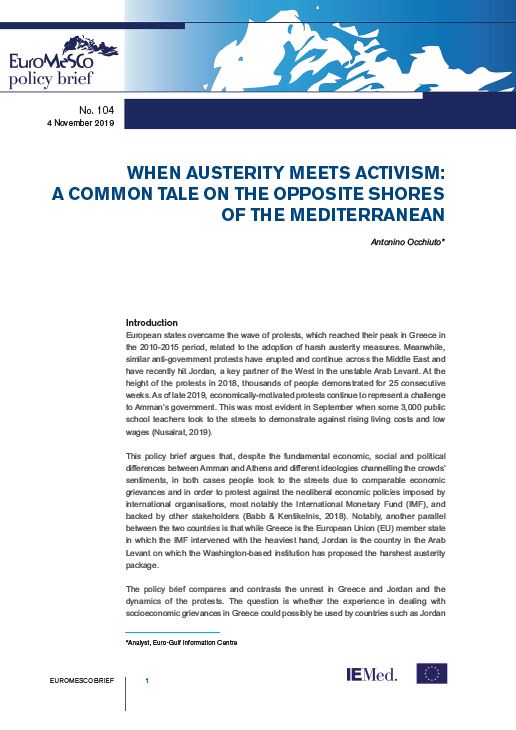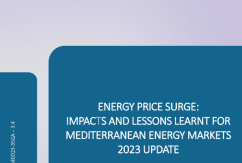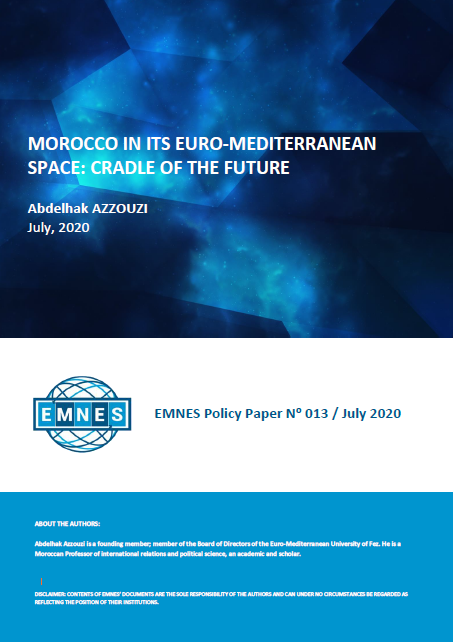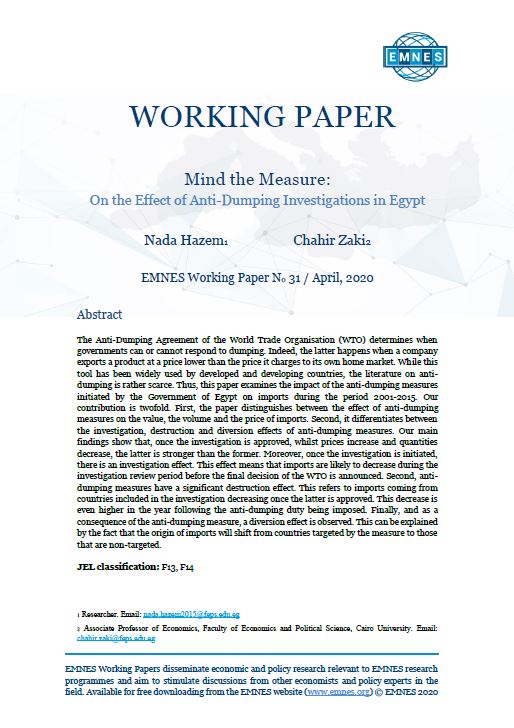Euromesco Policy Brief 104: When Austerity Meets Activism: A Common Tale on the Opposite Shores of the Mediterranean


European states overcame the wave of protests, which reached their peak in Greece in the 2010-2015 period, related to the adoption of harsh austerity measures. Meanwhile, similar anti-government protests have erupted and continue across the Middle East and have recently hit Jordan, a key partner of the West in the unstable Arab Levant. At the height of the protests in 2018, thousands of people demonstrated for 25 consecutive weeks. As of late 2019, economically-motivated protests continue to represent a challenge to Amman’s government.
This policy brief argues that, despite the fundamental economic, social and political differences between Amman and Athens and different ideologies channelling the crowds’ sentiments, in both cases people took to the streets due to comparable economic grievances and in order to protest against the neoliberal economic policies imposed by international organisations, most notably the International Monetary Fund (IMF), and backed by other stakeholders.
It compares and contrasts the unrest in Greece and Jordan and the dynamics of the protests. A description of the origins of the protests is followed by a comparison of the protests in Athens and Amman, with a focus on the demands, immediate outcomes and political and geopolitical implications. Conclusions and recommendations related to Jordan are provided in the final section.





































